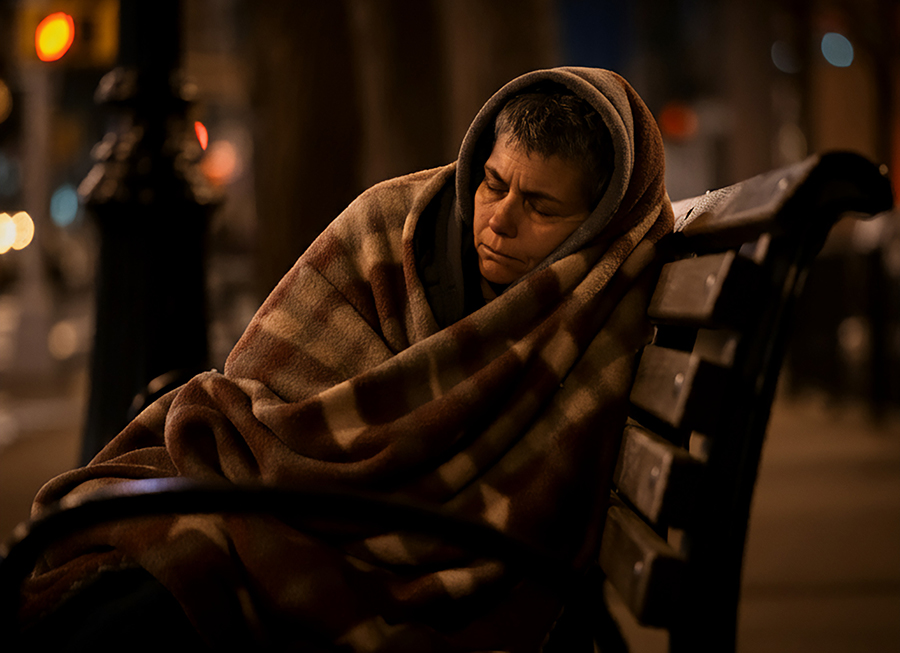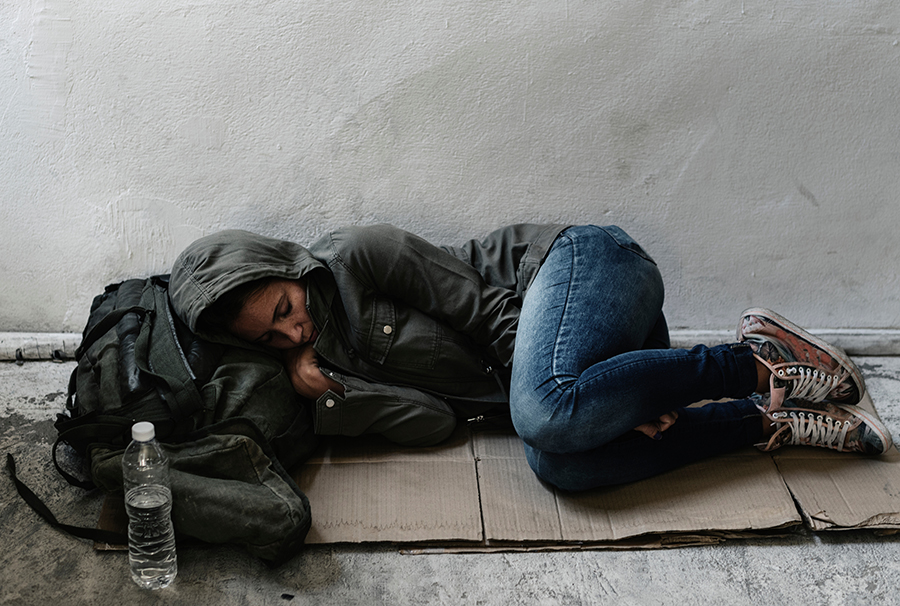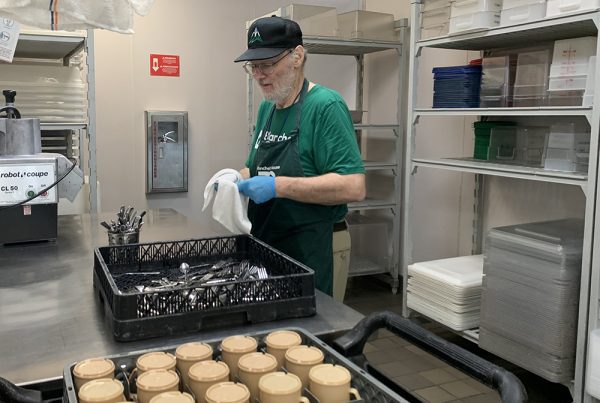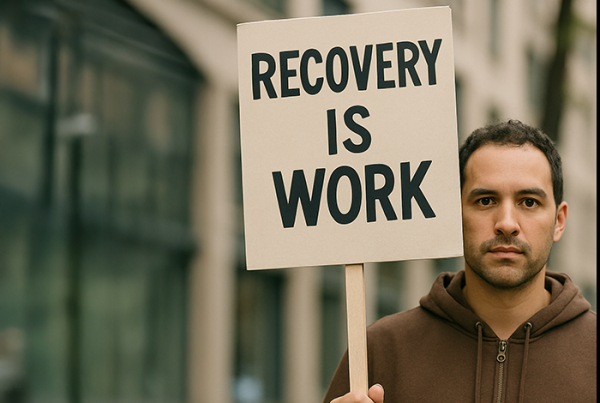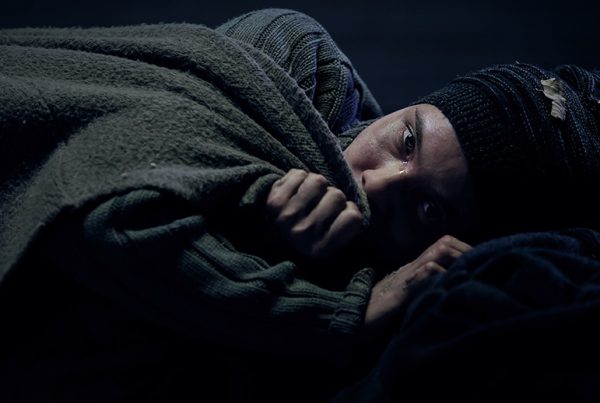For homeless women, nighttime is the worst time of day when sleep isn’t just hard to come by, but dangerous.
When most of us lie down to sleep, we do so behind locked doors, under a roof, and with a sense of security. But for people experiencing homelessness, nighttime brings fear, discomfort, and vulnerability. For women living unsheltered, nighttime is especially scary and the most distressing time of day. Sleep isn’t just hard to come by, but it can be dangerous.
Safety Takes Priority Over Rest
For people who have found themselves forced to sleep outside, the dark and isolation of night bring a greater risk of assault, harassment, or theft. Women, in particular, are at high risk of sexual violence. They may avoid sleep or isolate themselves in hidden areas in an attempt to stay safe.
“Right now, I walk around all night. It would feel a lot safer in a shelter,” shared Kasie, a woman experiencing homelessness in Portland, OR.
Some women pair up with others, stay in less-than-ideal relationships for safety, form informal groups, or stay in public places that are well-lit to lessen risk. But even then, the stress of staying alert prevents deep, restorative sleep required for good health.
Lack of regular sleep can lead to health issues like a weakened immune system, poor mental health, and poor decision-making. A lack of sleep can even lengthen someone’s homelessness by making it harder to access services, attend appointments, or advocate for needs.
Reliable access to a good night’s rest, food, and hygiene is critical for someone to tackle the complex challenges of finding housing and resources. We’ve all likely experienced a difficult day after a lack of rest.
According to the Mayo Clinic, a lack of sleep weakens your immune system, making you more likely to get sick and slower to recover. During sleep, your body produces protective proteins called cytokines, which are especially important when you’re fighting infection or stress. Without enough rest, your body makes fewer of them.
The Lack of Shelter Beds for Women
Most emergency shelters are not designed with the specific needs of women in mind, and beds for single women are limited. On the west side of Portland, there is currently only one women’s shelter that doesn’t require a referral, the Salvation Army’s SAFES. Requiring a referral to access shelter can be a life-threatening barrier because it means having access to a phone or computer during business hours. Women must have access to shelters where they can sleep without having to plan ahead.
Because men make up the majority of people experiencing homelessness, 69% according to Multnomah County’s 2023 Point-in-Time Count, shelters are often designed and funded to meet their needs, leaving women with fewer options. In some cases, women avoid co-ed shelters altogether after experiencing or hearing about unsafe conditions and harassment. The result is that many women choose to stay outside.
Constant Movement Leads to Day Sleeping
Many women are forced to “sleep with one eye open,” always ready to move in case they are bothered or told to relocate by security. It’s not uncommon to witness people experiencing homelessness sleeping during the day because they weren’t able to sleep at night safely. Some individuals may use drugs, particularly stimulants like methamphetamine, to stay awake at night. This can lead to addiction exacerbating an already difficult life of being homeless.
“I don’t go anywhere by myself. I don’t feel safe,” said Melissa, who’s sleeping in a small tent with her partner in Portland. “I’ve heard what happens to women out here.”
For women who’ve experienced trauma, which is likely everyone who’s unhoused, their body is in a state of hypervigilance to keep them safe. Even when exhausted, their bodies can remain on high alert, making rest elusive or impossible.
A Homeless Shelter is More Than a Bed
Providing easy access to overnight shelter is more than just a place to sleep, it’s a place to feel safe. It’s a place to connect with others rather than remain isolated. Sleep is not a luxury, it’s a basic human need. Until all people have a safe place to sleep, we must keep working to remove the barriers that keep them awake at night.
–by Julie Showers














